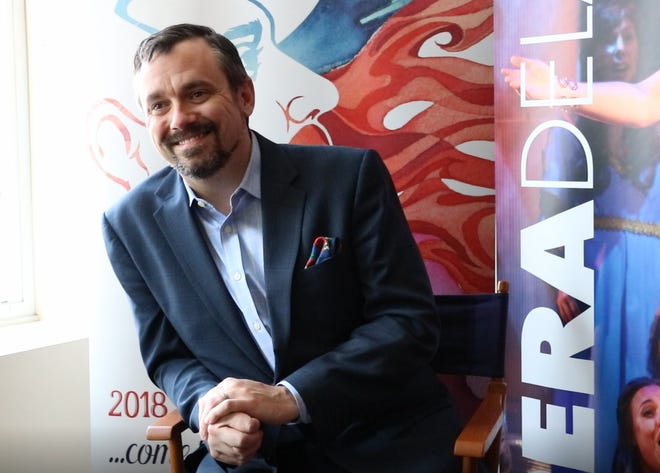Editor’s note: Open Call is a weekly column in which we ask arts and cultural leaders to share their perspectives on emerging from the COVID-19 crisis and welcoming back audiences.
Back in June, I was invited to share an update surrounding OperaDelaware and our plans for navigating through, and then out of the pandemic.
I shared details in this column about our innovative and well-received outdoor programming, our digital offerings, and several other unexpected “silver linings” that seemed to emerge in what we thought was the tail-end of a terrible dream.
Emergency support from the federal government and the state allowed us to keep our team in place, and individual philanthropic support was robust. It was your basic “making lemonade out of lemons” post.
We had made it through a very difficult time, and a return to normal felt imminent. Summer was here, outdoor performances continued, and all signs pointed toward a triumphant return to the Grand Opera House for February of 2022.
At the time, this plan felt almost … too conservative.
The Delta variant surge caused yet another round of plans to be re-envisioned in the fall. Then Omicron.
Why we have host this column: In creating this space, we witnessed huge impact arts played in our community
More altered plans, more shortened performances with limited audience. The cancellation of a multi-organization celebration marking the return to live classical performances at The Grand felt particularly like a punch below the belt from this terrible virus.
It was one more giant expense of metabolic capital as we were forced to make big decisions with limited information, yet again.

One more round of wondering how patrons would respond to our decisions, and another period of time wondering just how long we could call ourselves an opera company without presenting opera.
Flash forward to today, when again I’ve been graciously afforded the opportunity to let readers know about OperaDelaware’s plans.
The plan that a few months ago felt too conservative, now feels a lot like trying to land a very large plane on a very short runway.
Though we are confident that our venue’s health and safety protocols will keep our patrons and artists safe for performances, opera is a very tricky business with a lot of moving parts, much like the large plane in the above analogy.
More Open Call:Bringing the power of music to everyone is aim of The Music School of Delaware
Artists arrive six weeks before performances, and most of them stay with patrons in generously donated home stays.
They arrive from all over the country to sing loudly at each other (in a very beautiful and controlled way) in Italian for a month before they perform for our patrons at the opera house.

While we could take comfort in knowing that our safety protocols (which include having all of our staff and artists vaccinated) would keep our team protected from severe illness, the high positivity rates and required isolation time have had us wondering “which 27% of our team can we do without, and for which 5-10 days?”
Our calculus has changed from a health decision to a financial one.
What would happen if we moved forward and ended up having to cancel after artists had already arrived? What were the financial and artistic implications of another postponement?
These are the questions that we are asking as we once again put together an incomplete picture of information from which we’ll base the decisions for our next steps. The invitation, however, was to let readers know the plans for our season — and that’s just what I’ll do:
Today, we are still booking flights and hotels for artists’ arrival at the end of this month for our February production of “The Barber of Seville.;”
More Open Call:‘Mistakes’ in art lead to vital creative transformation
We are still watching the trajectory of the virus and its impact on our daily life. We are still writing contingency plans. All of them.
We have confidence from our medical advisors that we’ll be in a better place by the time we welcome the public to performances in February, and we’re confident that we can keep our artists safe in the process.
What changes between the time of writing this column and its printing, well … your guess is as good as mine … but we’ll be as ready as we can for whatever comes.
Don’t lose heart, friends, and remember that after the plague came the renaissance.
Brendan Cooke is general director of OperaDelaware.